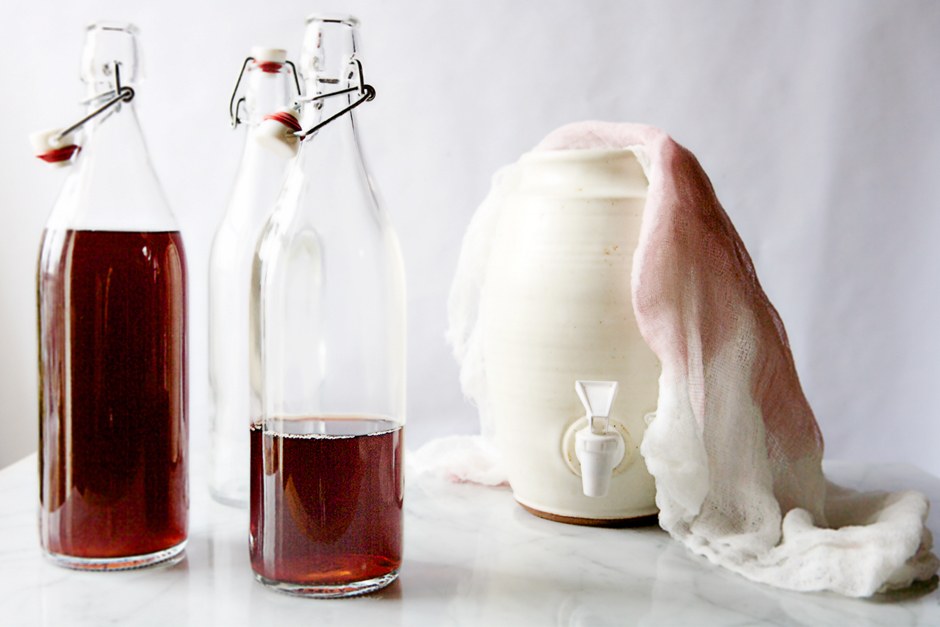When you become pregnant your circulatory system must expand so as to accommodate your baby. With this expansion, your body creates more blood and therefore the circulation of blood increases. These changes may cause some problematic side effects like more frequent nosebleeds while you’re pregnant. In this article, we will discuss nosebleeds during pregnancy.
In this article:
Causes of Nosebleeds During Pregnancy
How to Stop a Bloody Nose in Pregnancy?
When to Consult a Doctor?
6 Home Remedies for Nosebleeds During Pregnancy
All You Need to Know About Nosebleeds During Pregnancy
Causes of Nosebleeds During Pregnancy
Nosebleeds can occur due to the below reasons.
- During pregnancy blood flow to the body’s mucus membranes, including the nose, increases causing them to swell and become soft. Blowing and sneezing can then cause a nosebleed.
- People tend to take antihistamines and decongestants for allergies, colds, or sinus problems. These things can dry out the nasal membranes and cause nosebleeds picking of the nose due to itching, can also disturb the nasal membrane and rupture the blood vessels easily, causing nosebleeds.
- If you catch a cold or have nose-infection or sinuses, then the mucous membrane tends to become dry, and the vessels rupture easily. This causes the nose-bleed.
- Dry air because of weather conditions or, air-conditioned rooms, aircraft cabins, and other dry regions, increase the risk of nosebleeds.
How to Stop a Bloody Nose in Pregnancy?
Your nose contains many small blood vessels. Due to the rise in blood circulation during your pregnancy, these blood vessels are more susceptible to burst, causing a nosebleed. If you want to blow your nose or wipe it for any reason, make certain you are doing so gently. This will help reduce your possibility of getting a nosebleed during pregnancy. Also, you’re far more likely to induce a nosebleed when the air is dry, so during the winter months, it’s important to use a humidifier in your home.
When to Consult a Doctor?
In some cases, nosebleeds are often a symptom of an underlying condition and should be diagnosed by a doctor. Seek medical care if:
- There’s persistent discomfort within the chest or labored breathing accompanied by nosebleed
- Your nosebleeds are accompanied by numbness, facial drooping or a tingling sensation within the extremities; this might be an indication of a stroke
- If there is a loss of consciousness
- The nosebleeds are related to fatigue, confusion or lightheadedness
- You experience heavy bleeding, which doesn’t stop even after half an hour
- You are on an anticoagulant, which can interfere with the bleeding
6 Home Remedies for Nosebleeds During Pregnancy
These basic and usual ways to prevent sudden nose bleeding can come handy. Here’s what you should do immediately.
Cold Compress
One of the foremost effective remedies for nose bleeding included cold compress. Holding a cold compress against your nose for a couple of minutes can help constrict the small blood vessels in your nose that are bleeding. The coldness will encourage the nose’s interior blood vessels to narrow.
Pinch the Nose
The easiest way is to pinch your nose because it sends pressure to the bleeding point within the septum that helps the blood to prevent flowing immediately. All you would like to do is to take a seat straight with your head tilted slightly forward. Using your thumb and forefinger, pinch the soft a part of your nose. Do this for about five to 10 minutes. Make sure you are breathing from your mouth. Repeat till the blood doesn’t stop flowing.
Vitamin K
Vitamin K rich foods like kale, spinach, mustard, broccoli, cabbage, etal are involved in the formation of collagen that helps in creating a moist lining inside your nose. This vitamin helps keep the blood vessels in good shape preventing them from rupturing easily. For a long-term cure, loading up on vitamin K-rich foods helps a great deal. Green leafy vegetables facilitate blood clotting.
Vitamin C
Getting enough vitamin C foods on a daily basis may help make the blood vessels stronger so that they are less susceptible to rupture and cause a nose bleed.
Apple Cider Vinegar
One of the simplest home remedies is apple cider vinegar because the acid within the vinegar helps constrict the blood vessels, thus stopping the bleeding. All you would like to do is to dip a cotton ball within the vinegar and place it within the affected nostril for about five to 10 minutes.
Saline Water
Dryness within the nasal membranes, especially during winters is one of the most common causes of nose bleeding. In order to solve this problem, soothe and moisturize the nasal membranes with saline water. Take a bowl, add some water to that and stir it well. Put a couple of drops of this solution in your nose to moisten the inner lining of the nasal passages.
Therefore, to conclude, these home remedies are very effective when you want to treat nosebleeds during pregnancy. However, if the problem still persists, make sure to visit a doctor.
References:
https://www.ncbi.nlm.nih.gov/pmc/articles/PMC3918343/
https://www.nhs.uk/conditions/pregnancy-and-baby/nosebleed-pregnant/
https://www.hindawi.com/journals/criog/2019/5825309/












